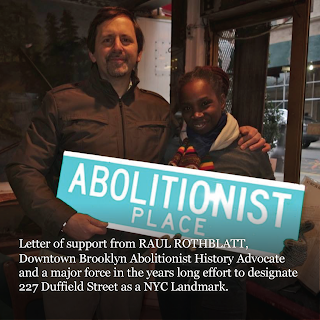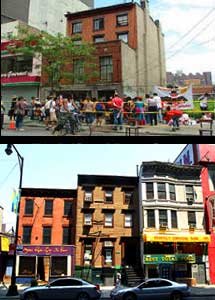What would have the African American suffragists of the 1890s thought about the Kyle Rittenhouse verdict? They certainly would not have been surprised, but I’ve been thinking about them because I think we can learn from their inspiring determination and dedication to fighting white supremacy.
Back in the 1890s, many people would have called themselves white supremacists. That must have been infuriating here in Brooklyn, where slavery was abolished in 1827 and we had already defeated the slavers in the Civil War. But the Reconstructionist efforts were dead and lynching was on the rise.
On a superficial level, these African American women merely looked like social climbers. They dressed in poofy dresses, played classical music, and organized literary societies. But how they reacted to Ida B. Wells is really what’s important.
In 1892, Ida B. Wells’ press was burnt down by an angry white supremacist mob. She had to leave Memphis because the crowd wanted to lynch her as well. Wells wrote about lynching methodically and used facts as a weapon. But what really enraged the white press was the idea that maybe some white women were attracted to Black men. Lynching had wide support among the white community because of the supposed debased character of African Americans. Newspapers like the Brooklyn Eagle justified lynching because the judicial system was too slow to punish African Americans.
But the Black church women of Brooklyn and New York were the first to support Ida B. Wells. They raised money for her, and supported her emotionally, intellectually, and organizationally. That’s a big reason why Ida B. Wells moved to Gold Street near Flatbush in Brooklyn in 1892.
These women, like Maritcha Lyons, would have been very familiar with people like Kyle Rittenhouse who went to a protest looking for violence and then found it, leaving two people dead at his hands. They would have been very familiar with a legal system that acquitted him of all crimes, since lynchers were almost never prosecuted.
What they might have been shocked at is the support that political leaders give to Rittenshouse. Even back in the 1890s, the openly white supremacist newspaper Brooklyn Eagle was critical of lynching. The white leaders recognized that mob rule was bad. Nowadays, so-called political leaders are glad to follow the leadership of gun-toting killers with a depraved disregard for human life.
I’m writing this today because I want to emphasize that we’re not any smarter or better organized than these women and their fancy art shows. We think our ideas nowadays are new. Supporting mental health initiatives, fighting for better education for minority children, mutual aid groups… all this pales in comparison to what they did.
It wasn’t until 1920 that women got (almost) universal suffrage. It took decades of organizing to expand voting rights that had been limited by gender.
Some of the institutions these women founded are still with us. Dr. Susan Smith McKinney played organ at Bridge Street Church for 28 years, and it’s still here. Maritcha Lyons was an educator for 48 years, and her school that was formerly known as Colored School #2 is now PS243 The Weeksville School.
For me, these women give me hope. They saw worse things than we did. Some witness the Draft Riots of 1863, and then proceeded to fight for education and suffrage for another 50 years. We have heroes here in Brooklyn that deserve to be celebrated. Let’s live up to their legacy.



